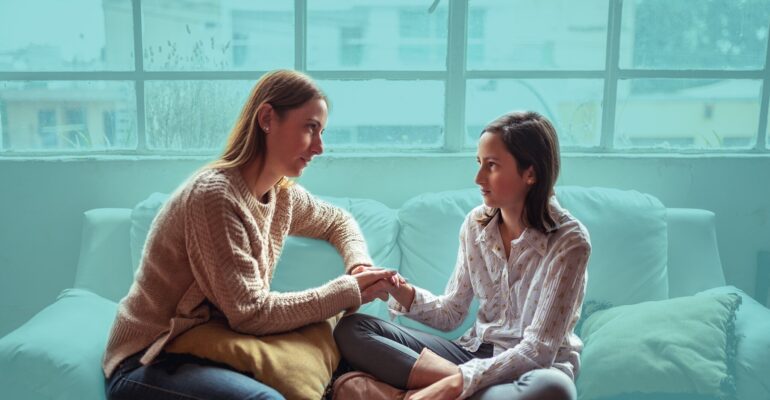 14 Jun 2020
14 Jun 2020
Talk to your kids about diversity and inclusion—and yes, also about race
What do we tell children about this upside down world? In the middle of a pandemic, George Floyd’s death in the United States has sparked world-wide indignation and raised realities of the racism, injustice and the inequality societies harbour. Canada included. Institutional supports such as policing, the criminal justice system and mental health, have let us down. While our instinct is to shield kids from such ugliness, we cannot. Parents and grandparents and other important adults in young lives have to talk to kids about diversity, inclusion and yes, racism.
As caring adults, we must equip our kids with sturdy tools to help them deal with the world. By having lots of open conversations, modeling inclusive behaviors and guiding them to be accepting of others and their differences, we gift them these tools. Like every other aspect of parenting, what we do speaks louder than what we say. Our kids are watching, picking up cues from our body language and expressions.
We may feel uncomfortable talking to kids about race. We also imagine that little ones do not notice skin colour. So, should we really draw attention to our differences? The answer is yes. Three year olds already have awareness of differences and similarities between people: the window is opened to teach acceptance and inclusion. If adults are unwilling to address race, among other differences, these topics become taboo, leading kids to conclusions cobbled together from assumptions, the media, and friends.
We owe it to the next generation to take a deep breath and dive into to tough conversations. Just by talking, we signal the discussion’s importance and are prompted to consider our own biases and assumptions. Developing empathy, compassion, and a sense of justice takes practice and it needs to start early. Learning to appreciate not just racial and cultural differences, but diversity in socioeconomic levels, gender, and disabilities - is an important growing-up skill, and becomes a life-long journey.
When parents model the attitudes, behavior and values they wish to see in their kids, they help them embrace and appreciate diversity in everyday experiences. Beyond being a moral, ethical and human rights issue, diversity is a strength of society. We build a better future for kids when we lay the groundwork for inclusion, empathy, and respect for all.
Babies are born with a compass of justice and fairness: we should nurture this then get out of their way.
Kelly Stone
CEO Families Canada




Families Canada